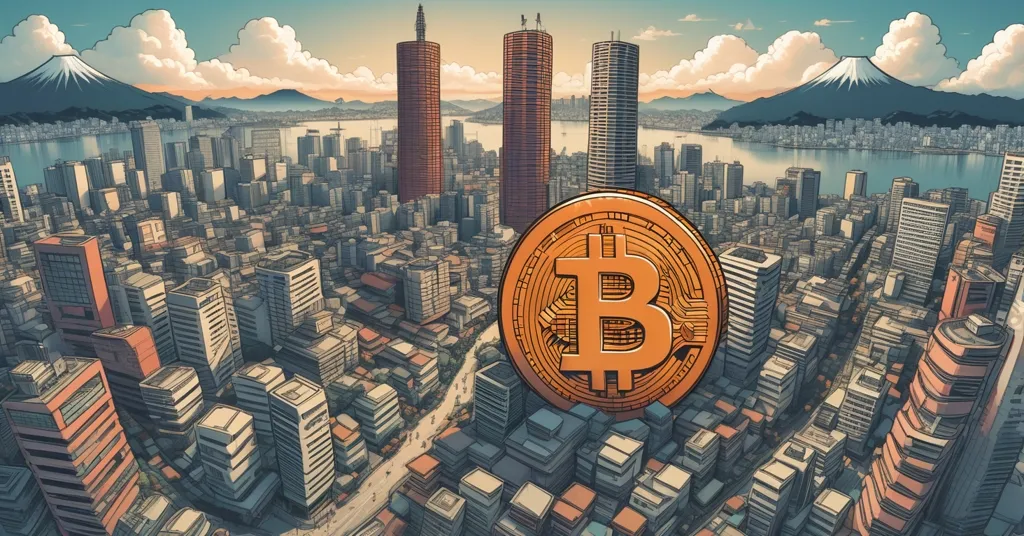Samson Mow Pushes for Japan’s Bitcoin Reserve Amid New Crypto Regulations

Samson Mow Urges Japan to Establish Bitcoin Reserve: Will the Government Embrace the Proposal?
Samson Mow, a prominent Bitcoin advocate, has met with Japanese politician Satoshi Hamada to discuss the establishment of Japan’s first Bitcoin reserve, signaling a potential shift in the country’s approach to digital assets.
- Japan considers Bitcoin reserve
- New crypto regulatory framework
- Samson Mow meets Satoshi Hamada
Japan, a global economic powerhouse, is on the cusp of a significant transformation in its financial landscape. Samson Mow, CEO of JAN3 and a vocal Bitcoin supporter, recently engaged with Satoshi Hamada, a member of Japan’s Upper House, to discuss the creation of the country’s first Bitcoin reserve. This move comes as Japan’s Financial Services Agency (FSA) proposes a new regulatory framework for digital currencies, classifying them into Type 1 (for fundraising and business operations) and Type 2 (for non-fundraising activities). This framework aims to integrate cryptocurrencies into Japan’s economic system while managing the inherent risks.
The dialogue between Mow and Hamada underscores a growing interest in digital assets within the Japanese government. Mow’s advocacy for Bitcoin reserves is part of a broader push to enhance economic independence and competitiveness. Hamada, who has previously called for a strategic Bitcoin reserve, indicates political support for such an initiative. This meeting has sparked interest among Japanese officials, suggesting that a strategic Bitcoin reserve could be on the horizon.
Historically, Japan has approached cryptocurrencies with caution due to concerns over volatility and security. However, recent global developments, such as El Salvador’s adoption of Bitcoin as legal tender in 2021, have prompted Japan to reconsider its stance. El Salvador’s success in boosting tourism and enhancing financial inclusion through Bitcoin adoption has set a precedent that Japan is keen to explore.
While the establishment of a Bitcoin reserve could position Japan more competitively in the global digital finance landscape, the government remains cautious. The potential benefits include lasting advantages to Japan’s budget and increased economic self-sufficiency. Yet, the volatility of Bitcoin and the security risks associated with digital assets continue to be significant concerns. Japan must balance the promise of innovation with the need to protect its financial security and national interests.
Global trends are playing a crucial role in shaping Japan’s policies. Other nations implementing Bitcoin projects for budget management are pressuring Japan to adapt to avoid falling behind in the digital finance sector. As Japan navigates this new terrain, its approach to digital assets is evolving, driven by a mix of global influence and domestic innovation.
Japan’s new regulatory framework for cryptocurrencies is a significant step towards integrating digital assets into its economy. The distinction between Type 1 and Type 2 crypto assets allows for tailored regulation based on the activities they are associated with. This approach is designed to foster innovation while protecting investors and the financial system.
Samson Mow’s proposal to establish a Bitcoin reserve in Japan has sparked discussions about cryptocurrency regulation. Mow isn’t just mowing down the grass; he’s aiming to mow down skepticism about Bitcoin reserves in Japan. His proposal aligns with the global trend of countries exploring digital assets as part of their economic strategy.
Globally, the adoption of Bitcoin as a reserve asset is gaining traction. Countries like El Salvador have shown that embracing Bitcoin can lead to increased tourism and financial inclusion. Japan, with its strong economy and technological prowess, could benefit significantly from following suit. However, the volatility of Bitcoin remains a legitimate concern that Japan cannot simply brush aside.
While there are hurdles, the potential rewards of a Bitcoin reserve are too significant to ignore. Japan’s cautious approach to cryptocurrencies might just be the right balance needed to harness the power of Bitcoin without compromising its financial security.
Key Questions and Takeaways
- What is Japan doing to integrate cryptocurrencies into its economy?
Japan is developing a new regulatory framework for digital currencies and considering the establishment of a Bitcoin reserve, following discussions between Samson Mow and Satoshi Hamada.
- Why has Japan’s perspective on cryptocurrencies changed?
Japan’s perspective has shifted due to recent regulatory changes and global trends, including El Salvador’s adoption of Bitcoin as legal tender, which has influenced global cryptocurrency policies.
- What are the potential benefits of a Bitcoin reserve for Japan?
A Bitcoin reserve could provide lasting advantages to Japan’s budget and enhance its economic independence, positioning the country more competitively in the global digital finance landscape. It could also improve financial inclusion and tourism competitiveness.
- What are the main concerns Japan has regarding cryptocurrencies?
Japan’s main concerns include the volatility and security issues associated with cryptocurrencies, as well as the potential impact on financial security and national protection.
- How does global adoption of cryptocurrencies influence Japan’s policies?
Global trends, such as other nations implementing Bitcoin projects for budget management, are pressuring Japan to revisit its cryptocurrency policies to avoid falling behind in the digital finance sector.



